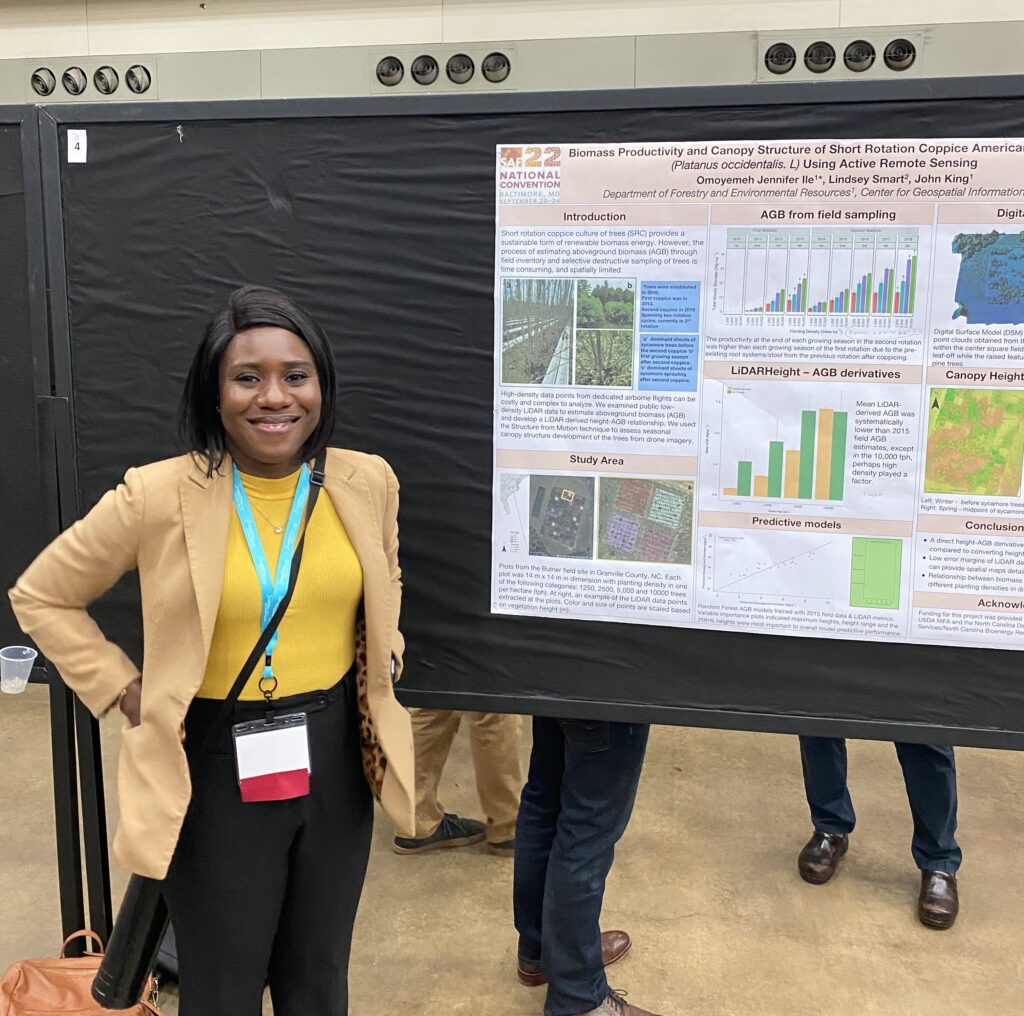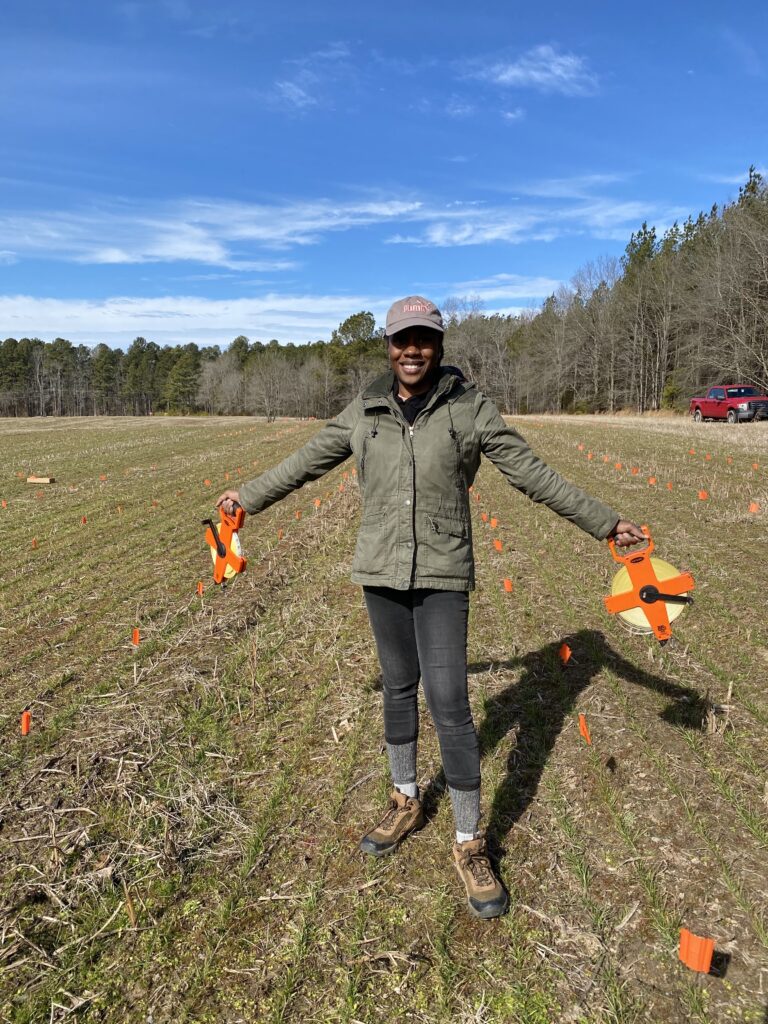Jen Ile wins SAF Poster Award
Jen Ile’s poster won second place award at the 2022 Society of American Foresters National Convention in Baltimore. We asked Jen a few questions, so you can learn more about her research and plans for after graduation.

What is the title and summary of your research?
Biomass Productivity and Canopy Structure of Short Rotation Coppice American Sycamore Using Active Remote Sensing
Can you tell us a little about your program of study?
I work in the Tree Physiology and Ecosystem Science lab where our research group is interested in a variety of topics associated with physiology and ecology of forested ecosystems. My study includes the afforestation of degraded agricultural fields with short rotation coppice sycamore trees as a feedstock for biomass energy and to restore soil health of the agricultural fields. I quantify the yearly biomass productivity of the trees and their carbon sequestration rates while examining the impacts of the trees on soil properties. I also explore the use of active remote sensing (publicly available LiDAR data and drone imagery) to estimate the biomass productivity and canopy structure development of the trees. The ultimate goal is to find ways of integrating the short rotation coppice American sycamore trees into traditional agricultural farming systems in the southeastern region. This will help diversify rural farm economies, restore soil health, while providing environmental sustainability and resilience.

What influenced you to go into this field of study?
What influenced me is trees! I am interested in using trees as a natural based solution to solve our global environment challenges and to mitigate climate change. Short rotation woody crops (bioenergy trees) can provide a renewable source of energy, they can absorb carbon from the atmosphere, and improve soil health through their roots and litter inputs into the soil. By integrating these fast growing hardwood trees into the agricultural system, we can meet a couple of the U.N Sustainable Development Goals such as restoring degraded soils to improve on-farm productivity and land management system, improve the climate profile of agricultural landscapes, and enhance our regional and national carbon balance. The integrated system can also be established in the tropics where we have recurrent deforestation and conflicts arising from land tenure systems.

What do you plan to do after you graduate?
I would like to work in the forestry space, researching and exploring how trees can be used to solve other environmental challenges and working with stakeholders in exploring these solutions to make sure they are sustainable.
- Categories: